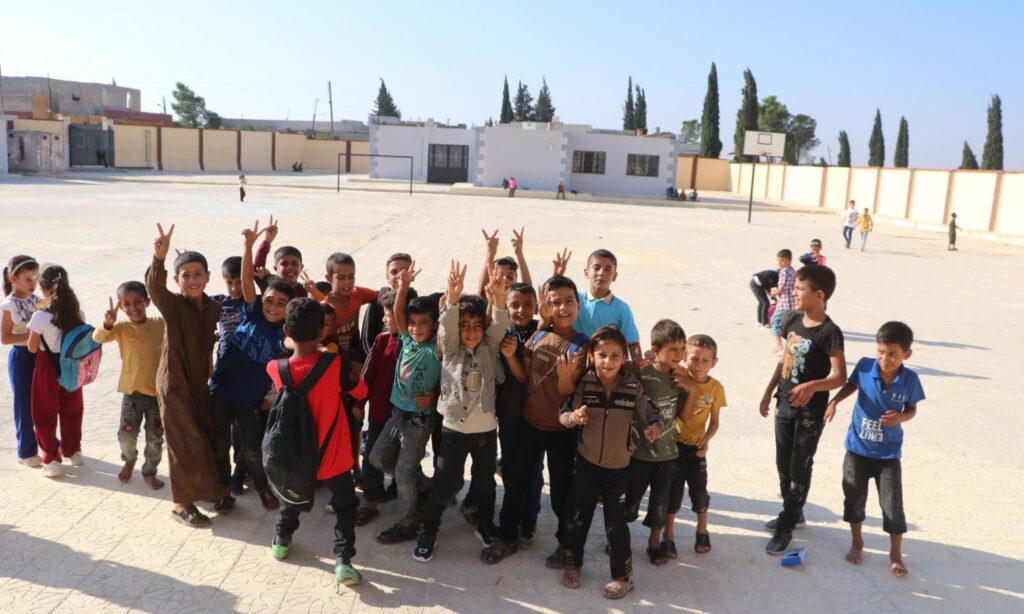Concerns are growing over the risks of targeting schools in Syria, as the United Nations warns against attacks on the education process on the International Day to Protect Education from Attack.
UN Secretary-General António Guterres said on Monday, September 9, that recent years have seen a significant increase in attacks targeting students, teachers, educational workers, and schools worldwide.
Guterres explained, on the occasion of the International Day to Protect Education from Attack, that no conflict comes without massive human losses, but for children and young people caught in the inferno of conflict, the costs are immeasurable.
He also urged all countries, in a message through the official UN website, to endorse and fully implement the Safe Schools Declaration, to support the Global Coalition to Protect Education from Attack (GCPEA), and to stand by efforts to ensure that children and youth continue their education during crises or after the fighting stops.
For its part, the United Nations Children’s Fund (UNICEF) indicated that millions of children affected by conflicts were unable to return to school this year.
Targeted by the regime and Russia
In northwestern Syria, the Syria Civil Defence rescue agency said that despite schools being civilian objects protected under international humanitarian law, systematic attacks by regime forces and Russia target schools and educational facilities, threaten the lives of students and educational staff, and undermine the educational process in northwestern Syria.
The Syria Civil Defence recorded that 170 schools have been targeted by the regime and Russia over the past five years, noting that schools have been targets for years.
It emphasized that accountability and non-impunity are the most critical steps for protecting education.
In a statement published today on Facebook, the Syria Response Coordination Group (SRCG) team indicated that over 2.3 million Syrian children suffer from educational dropout, an increase of 100,000 children from last year. This includes more than 386,000 children in northwestern Syria and 84,000 children in camps.
The SRCG noted that more than 891 schools have gone out of service, including 266 educational facilities in northwestern Syria, over the last three years due to regime and Russian attacks.
Furthermore, more than 77 schools in northwestern Syria are being used for purposes outside the educational process and are occupied for non-dedicated tasks.
In the northern camps, which house over two million displaced people, more than 66% of these camps (1011 camps) do not contain educational points or schools. Children are forced to travel long distances under various weather conditions to receive education.
Over the past three years, more than 57 teachers have lost their lives due to military attacks, in addition to the migration of hundreds of teachers and the termination of support for over 49% of schools, with the education sector’s response rate last year at only 32%, according to the SRCG.
Schools in areas close to contact lines such as Sarmin, Afes, and Nayrab in eastern Idlib, and Darat Izza and Atarib in western Aleppo countryside, are experiencing repeated suspension of classes.
Parents refrain from sending their children to schools after repeated shelling by regime forces and casualties among students and teachers.
The education sector in Idlib is suffering at the level of infrastructure, services provided to students, and teachers’ salaries. Teachers are repeatedly protesting for salary increases, even as shelling continues despite ceasefire agreements.
There are no official statistics on the actual number of students in Idlib and its countryside, as schools have been affected by shelling from regime and Russian forces in the region, especially during the escalation in October 2023.
The United Nations Office for the Coordination of Humanitarian Affairs (OCHA) reported that military escalation in northwestern Syria has significantly impacted access to educational services for 2.2 million school-age children.
It added that 2.2 million school-age children reside in northwestern Syria, with at least one million of them out of school, noting that the situation is particularly dire in displacement camps.

